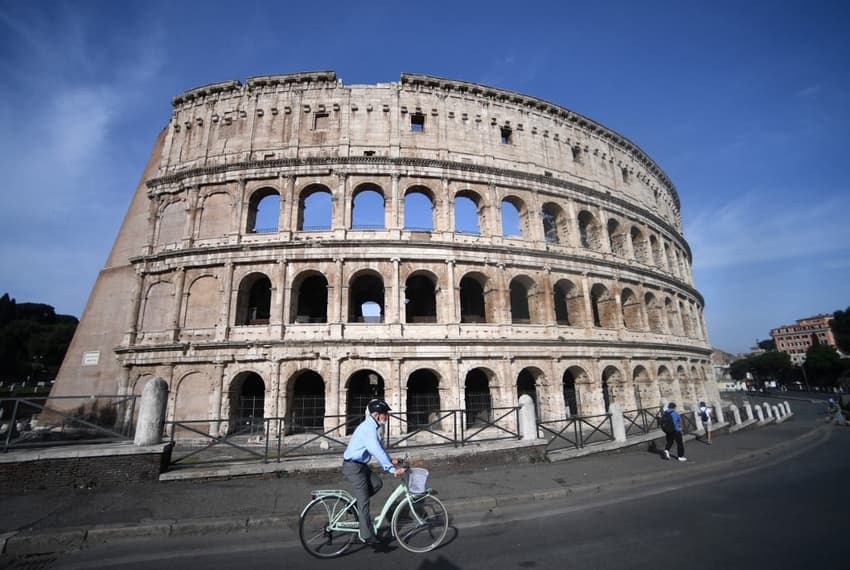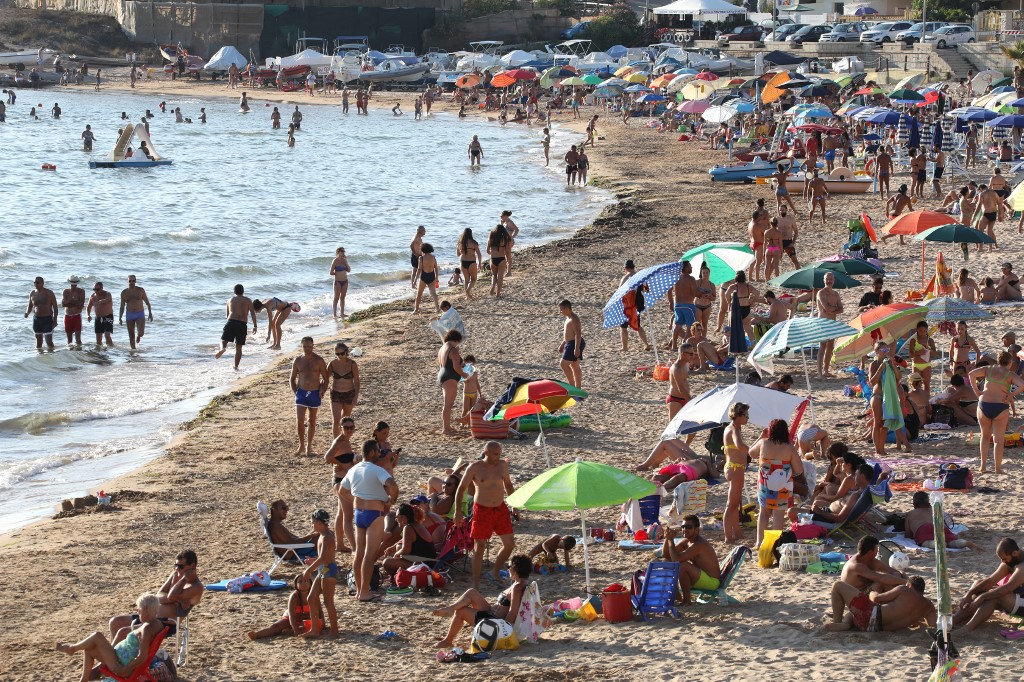Does Italy really offer the perfect work-life balance?

With plenty of public holidays, hour-long lunch breaks and busy 'aperitivo' hours, Italy has long been portrayed as the beacon of striking the perfect balance between life and work. But is this reality or myth?
When thinking of Italy, chances are its food, relaxed lifestyle and beautiful climate all come above work. It’s widely glamorised in Hollywood as enjoying the dolce far niente, that is the sweetness of doing nothing.
While these idealised portrayals are often very far from reality, a recent report by the Organisation for Economic Cooperation and Development (OECD) ranked Italy as the best country to live in for work-life balance.
The report indicated that only three percent of Italian employees work over 50 hours a week as opposed to the 10 percent OECD average. It also outlined that full-time workers in Italy devote 16.5 hours of their day to personal care as opposed to the 15-hour OECD standard.
There are multiple reasons behind these numbers: for one, the right to weekly rest and paid annual leave, and a cap on working hours are all clearly set out under Article 36 of Italy’s constitution. As it stands, the standard contracted working week in the bel paese is 40 hours, with 48 hours being the absolute maximum. This is the same as in the United Kingdom
Another similarity between the two countries is that, by law, workers should have an 11-hour interval between finishing and starting work. So why then, if the two countries have similar working laws, does Italy outshine the United Kingdom in the OECD’s report in terms of work-life balance?
An explanation for this could be that, though 40 hours is the standard for contracted work, it doesn’t necessarily mean that that number is always reached. 2022 statistics from the OECD showed that the average contracted Italian worker worked a total of 1,694 hours, which comes in at around 33 hours per week.
READ ALSO: INTERVIEW: 'Americans live to work, Italians know how to balance'
Another explanation could be knowing when to rest. In a recent interview with The Local, social media influencer Kacie Burns said: “Americans live to work and I used to thrive off chaos. Italians do way less so. They know how to balance. Having a full life means incorporating rest and coming from a culture that demonises rest, it was hard to grasp at first but now it’s my favourite thing.”

Tutti al mare: during August Italy's cities empty out and the beaches fill up. (Photo by Ludovic MARIN / AFP)
However, not everyone who lives in the country agrees and not all data ranks Italy as being the best for work-life balance.
For Mary Hassan Ali Rizzo, a self-employed Marche resident by way of Chicago, work-life balance in Italy is tilted more towards work.
“I don’t find the balance here good at all,” she said. “I’ve been self-employed for the last 33 years and to keep up with the high cost of living, high fiscal pressure and low wages, I have to work a minimum of 50 hours a week.”
She added that children attending school on Saturdays limits the time for leisure, with emphasis to carry out recreational activities being placed on Sunday. “Personal time is still not easy to find,” she said.
Struggles with working life are currently a big issue among international residents in the country, which seem to skew the narrative set by the OECD figures. Italy ranked 47th out of 53 countries in the 2023 Expat Insider Survey conducted by expatriate network group InterNations. Lack of job prospects was listed as the main disadvantage in the study.
Furthermore, no Italian city figured in Forbes' 2023 Worldwide Work-Life Balance Index, which rounded up the 25 world cities with the best work-life balance based on factors including average working hours, minimum legal annual leave and property price to income ratio.
That said, some international residents argue that it is not a country that determines work-life balance, but people themselves.
“People have a good or bad work-life balance in my opinion, not countries,” said Rome resident Zoe Joanne Green. “I could work fewer hours and survive on my partner’s wages, but I’d rather work more to afford things," she said.
“That’s a good balance for me. Others might value more free time though."
Do you have an opinion on Italy's work-life balance? Let us know in the comments below.
Comments
See Also
When thinking of Italy, chances are its food, relaxed lifestyle and beautiful climate all come above work. It’s widely glamorised in Hollywood as enjoying the dolce far niente, that is the sweetness of doing nothing.
While these idealised portrayals are often very far from reality, a recent report by the Organisation for Economic Cooperation and Development (OECD) ranked Italy as the best country to live in for work-life balance.
The report indicated that only three percent of Italian employees work over 50 hours a week as opposed to the 10 percent OECD average. It also outlined that full-time workers in Italy devote 16.5 hours of their day to personal care as opposed to the 15-hour OECD standard.
There are multiple reasons behind these numbers: for one, the right to weekly rest and paid annual leave, and a cap on working hours are all clearly set out under Article 36 of Italy’s constitution. As it stands, the standard contracted working week in the bel paese is 40 hours, with 48 hours being the absolute maximum. This is the same as in the United Kingdom
Another similarity between the two countries is that, by law, workers should have an 11-hour interval between finishing and starting work. So why then, if the two countries have similar working laws, does Italy outshine the United Kingdom in the OECD’s report in terms of work-life balance?
An explanation for this could be that, though 40 hours is the standard for contracted work, it doesn’t necessarily mean that that number is always reached. 2022 statistics from the OECD showed that the average contracted Italian worker worked a total of 1,694 hours, which comes in at around 33 hours per week.
READ ALSO: INTERVIEW: 'Americans live to work, Italians know how to balance'
Another explanation could be knowing when to rest. In a recent interview with The Local, social media influencer Kacie Burns said: “Americans live to work and I used to thrive off chaos. Italians do way less so. They know how to balance. Having a full life means incorporating rest and coming from a culture that demonises rest, it was hard to grasp at first but now it’s my favourite thing.”

However, not everyone who lives in the country agrees and not all data ranks Italy as being the best for work-life balance.
For Mary Hassan Ali Rizzo, a self-employed Marche resident by way of Chicago, work-life balance in Italy is tilted more towards work.
“I don’t find the balance here good at all,” she said. “I’ve been self-employed for the last 33 years and to keep up with the high cost of living, high fiscal pressure and low wages, I have to work a minimum of 50 hours a week.”
She added that children attending school on Saturdays limits the time for leisure, with emphasis to carry out recreational activities being placed on Sunday. “Personal time is still not easy to find,” she said.
Struggles with working life are currently a big issue among international residents in the country, which seem to skew the narrative set by the OECD figures. Italy ranked 47th out of 53 countries in the 2023 Expat Insider Survey conducted by expatriate network group InterNations. Lack of job prospects was listed as the main disadvantage in the study.
Furthermore, no Italian city figured in Forbes' 2023 Worldwide Work-Life Balance Index, which rounded up the 25 world cities with the best work-life balance based on factors including average working hours, minimum legal annual leave and property price to income ratio.
That said, some international residents argue that it is not a country that determines work-life balance, but people themselves.
“People have a good or bad work-life balance in my opinion, not countries,” said Rome resident Zoe Joanne Green. “I could work fewer hours and survive on my partner’s wages, but I’d rather work more to afford things," she said.
“That’s a good balance for me. Others might value more free time though."
Do you have an opinion on Italy's work-life balance? Let us know in the comments below.
Join the conversation in our comments section below. Share your own views and experience and if you have a question or suggestion for our journalists then email us at [email protected].
Please keep comments civil, constructive and on topic – and make sure to read our terms of use before getting involved.
Please log in here to leave a comment.